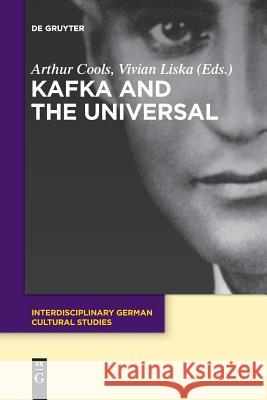Kafka and the Universal » książka
Kafka and the Universal
ISBN-13: 9783110608311 / Angielski / Miękka / 2018 / 333 str.
Kafka and the Universal
ISBN-13: 9783110608311 / Angielski / Miękka / 2018 / 333 str.
(netto: 119,09 VAT: 5%)
Najniższa cena z 30 dni: 106,76
ok. 16-18 dni roboczych.
Darmowa dostawa!
Kafka's work has been attributed a universal significance and is often regarded as the ultimate witness of the human condition in the twentieth century. Yet his work is also considered paradigmatic for the expression of the singular that cannot be subsumed under any generalization. This paradox engenders questions not only concerning the meaning of the universal as it manifests itself in (and is transformed by) Kafka's writings but also about the expression of the singular in literary fiction as it challenges the opposition between the universal and the singular. The contributions in this volume approach these questions from a variety of perspectives. They are structured according to the following issues: ambiguity as a tool of deconstructing the pre-established philosophical meanings of the universal; the concept of the law as a major symbol for the universal meaning of Kafka's writings; the presence of animals in Kafka's texts; the modernist mode of writing as challenge of philosophical concepts of the universal; and the meaning and relevance of the universal in contemporary Kafka reception. This volume examines central aspects of the interplay between philosophy and literature.











